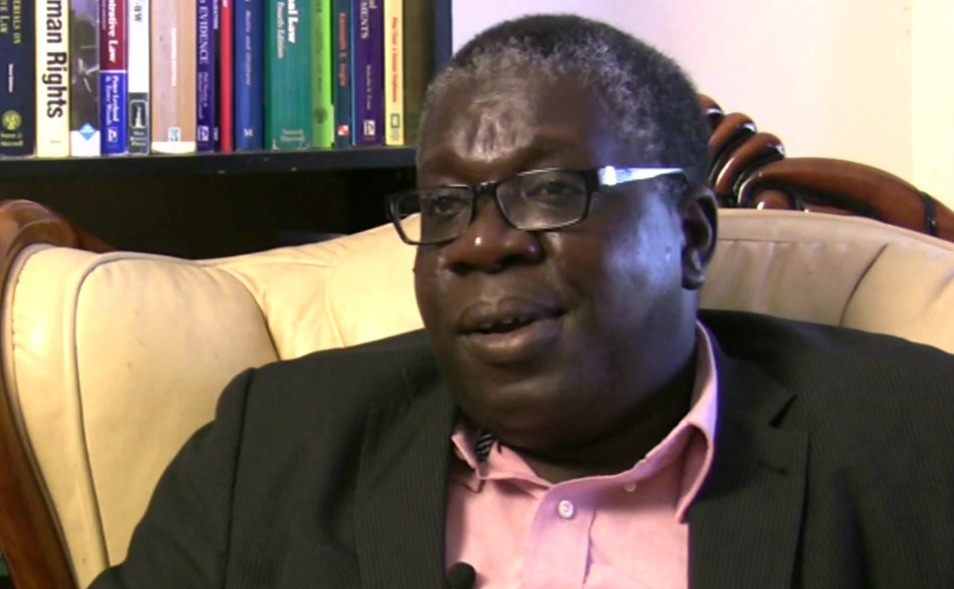By Kebba Ansu Manneh
Ebrima Chongan, the former Deputy Inspector General of The Gambia Police Force has told the Truth, Reconciliation and Reparations Commission (TRRC) that he was arrested, detained and manhandled by officials of the military Junta of Yahya Jammeh in July 1994.
Mr. Chongan made these revelations at the first hearing of the Truth, Reconciliation and Reparations Commission(TRRC) today, 7 January 2019, at the Dunes Hotel and Resort in Banjul.
“On the 25 July 1994, when I reported for work I found soldiers guarding the police headquarters and after sometimes we were all asked to come out and queue in front of the headquarters where myself and Pa Sallah Jagne then Inspector General of Police were arrested,” Mr. Chongan told the commission.
According to him, members of the military junta led by one Captain Sonko effected their arrests, adding that senior members of the police were arrested, bounded and dragged on pick-up trucks before they were sent to the Mile Two Central Prison.
Recalling the events leading to the 1994 military coup the former Deputy Inspector General of police said, the disbandment of the gendarmerie and the subsequent control of the command of The Gambia National Army by Nigerian military assistant group led to serious dissatisfactions among both the army and gendarmerie. He believes that these resentments may have been the reasons behind the coup.
“During this time all the commanders were Nigerians, it was only the platoon commanders who are Gambians and mostly lieutenants. This cause serious dissatisfaction among many officers of the army paving the way for a successful coup in 1994,” Mr. Chongan said in his testimony at the TRRC.
He said the gendarmerie that was created to provide security to the president were annexed to the police and only a small group of its military police unit was transferred to the army as a result of the intervention of the Nigerian military team. He added that once the gendarmerie were banned all their arms and ammunitions were handed over to the army. He said this change of paradigm gives the army the fire power to engage in a military coup.
Mr. Chongan told the commission that he was surprised to learn later that Lt. Yahya Jammeh was the Chairman of the military ruling council, describing him as someone who is very “rough, indiscipline and a plotter who has planned on many occasions to topple the government.”
Speaking on the dissatisfactions of the security forces, the former Deputy Inspector General of Police said the”lack of moral in the army, poor remunerations, lack of adequate housing, low salaries and lack of motivation coupled with the influence of the Nigerian military assistance who were under military rule may have also influence the 1994 Coup.”
He told the commission that the recall of the leader of the Nigerian military contingent to The Gambia, General Daada back to Nigeria with the replacement of General Lawal after Abacha took power has also created fractions among the army, adding General Daada did everything possible to influence Gambian authorities to prevail on Abacha to maintain him in Banjul.
“It was an open secret that everyone was talking about a possible coup, personally I am against coup but there is always rumors that I was planning a coup. If there was a security council at that time I don’t think the 1994 coup would have been possible,” Mr. Chongan argued.
Dilating on the efforts of the police to quash the 1994 coup, Mr. Chongan adduced that Press Jagne then Inspector General of Police gave the police the order to disarmed the army and possibly shot to death any mutineer soldier who failed to comply with lawful order.
According to him, in the morning of July 22 1994, he ordered the deployment of his troops to various strategic locations in the efforts of the policy to foil the coup, adding that he was at Denton Bridge with some of the police unit to intercept any attack from the army.
“I was very surprise to later learnt that some of our own men joined the mutineers to effect the coup,” Mr. Chongan expresses his shock to seeing the police joining the coup.
According to him, many senior officers both in the police and army where arrested and detained at Mile Two for forty-five days before they were notify of the reasons behind their arrests, adducing that they were detained under Decree No. 3 of the Armed Forces Provisional Ruling Council.
He told the Commission that the Red Cross was very influential during detention, revealing that after visit by officials of Red Cross they were provided with some toothpaste and blankets to use at the prison.
Mr. Chongan revealed the horrific situation of they encountered during their detention, noting that the food ration was took bad for consumption as well as mosquitoes that continually subjected them to harm.
He said he knew most members of the junta including Yahya Jammeh, Sadibou Hydara, Edward Singhateh and Sanna Sabally, adding he trained Mr. Jammeh and Mr. Hydara at the Gendarmerie Training School.

